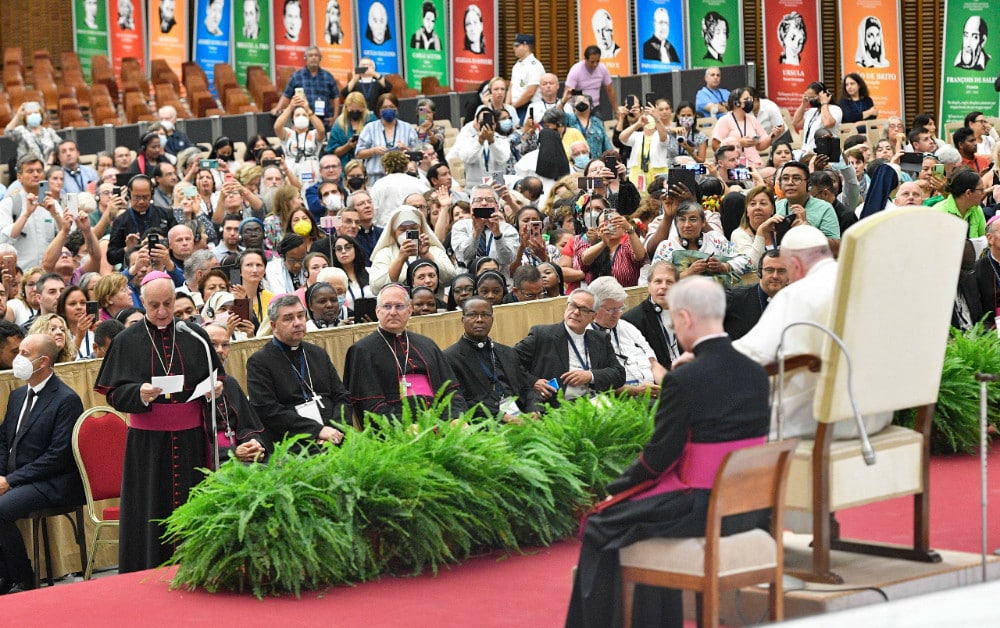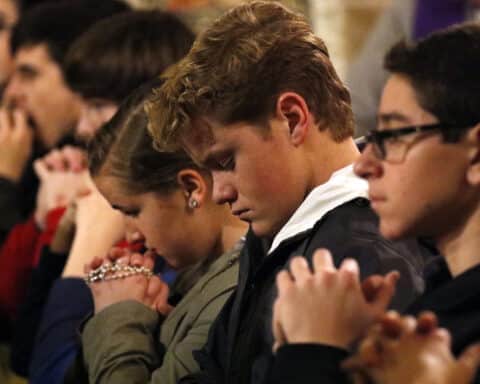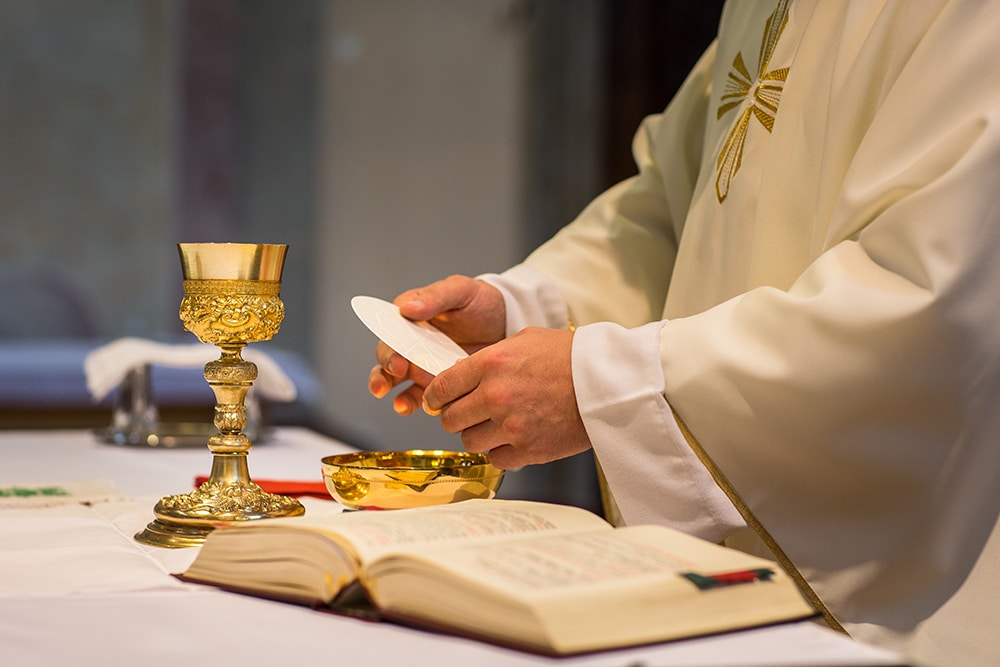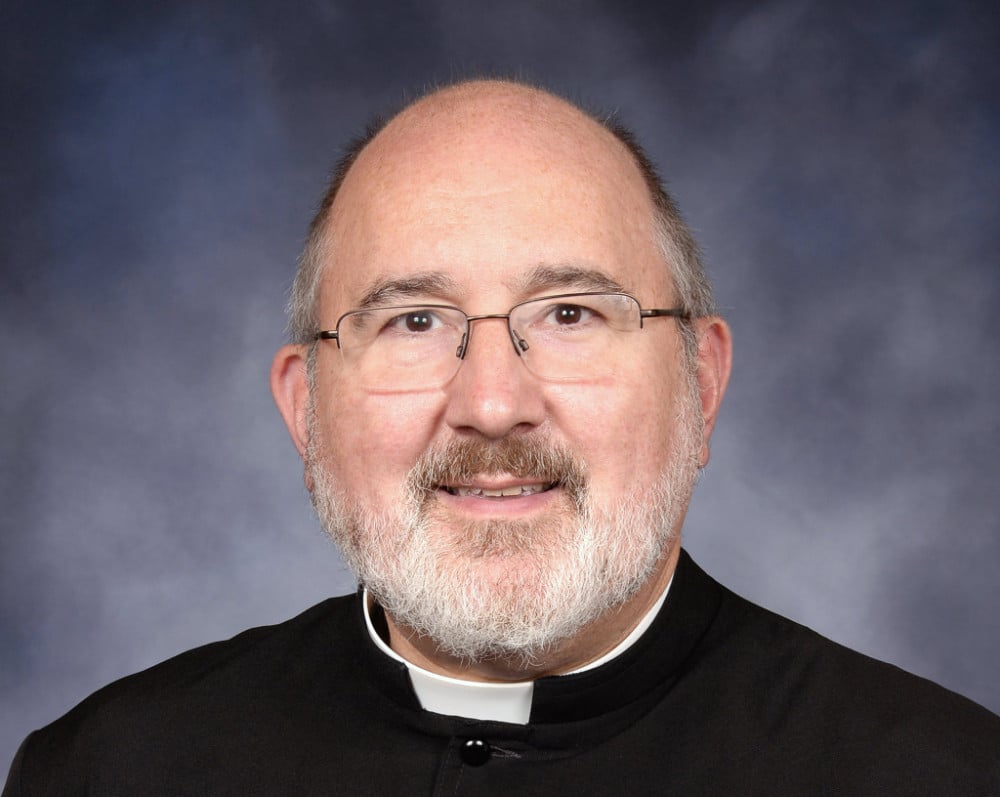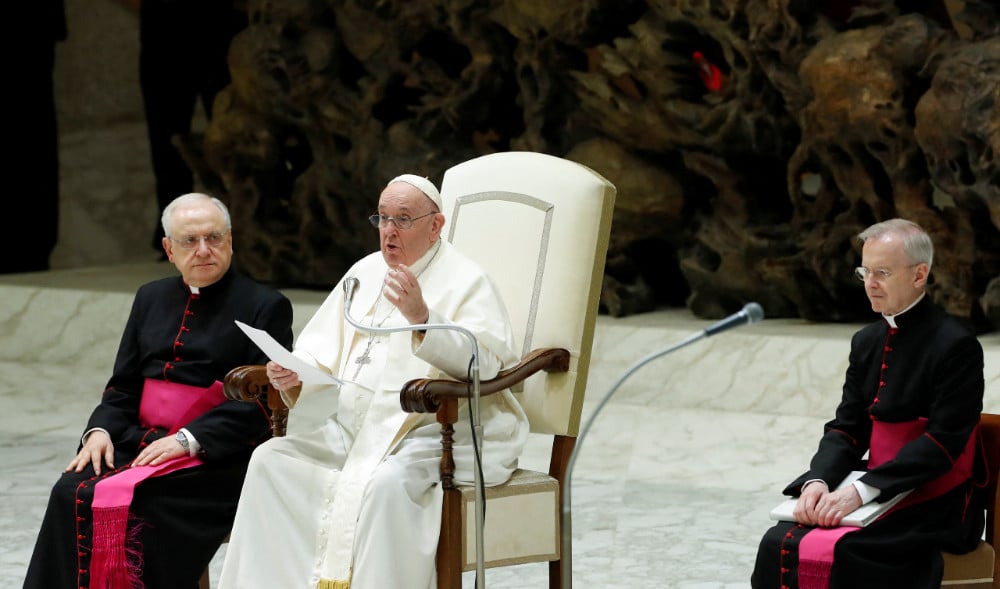“Never forget the purpose of catechesis, which is a privileged stage in evangelization, that of meeting Jesus Christ and allowing him to grow in us.” With these words, Pope Francis encouraged more than 1,400 participants in an international gathering of bishops, deacons, consecrated religious and lay catechists from some 82 countries as they gathered in Rome for the Third International Catechetical Congress. The theme of the early September gathering, hosted by the Vatican’s Dicastery for Evangelization and headed by Archbishop Rino Fisichella, was, “The Catechist: Witness of the New Life in Christ.” Speakers from the Vatican and around the world invited participants to reflect on their vocation as catechists and renew their dedication to make the Gospel resonate in the heart of every person.
The three-day meeting began with an address by Archbishop Fisichella, who reminded catechists that the congress was continuing reflection on themes taken up in previous meetings devoted to the first and second parts of the Catechism of the Catholic Church, which celebrates its 30th anniversary on Oct. 11. Archbishop Fisichella pointed to three icons on the “way of beauty” — the via pulchritudinis — as guides to reflection on the catechist as a witness to a life of freedom in Jesus Christ. A third-century fresco of Mary, believed to be one of the earliest artistic depictions of the Mother of God, a fourth-century fresco of the Gospel encounter of Jesus and the woman with hemorrhages who touched his garment and received healing, and a fourth-century sarcophagus near St. Peter’s tomb depicting Christ on a throne with Sts. Peter and Paul all served as visual reminders of the primacy of love in the vocation and mission of catechists. The new life in Jesus Christ is a gift of the Holy Spirit to be experienced as a life of freedom rooted in love of God and neighbor, Archbishop Fisichella said. Catechesis on the Christian moral life invites a person into the radical law of love expressed in the Commandments and the Beatitudes as preparation for a Christian life of selfless love and freedom in Jesus.
The kerygma, the core Gospel proclamation, at the heart of a catechists’ invitation to new life in Jesus Christ was the focus of reflection by Msgr. Antonio Pitta, professor at the Pontifical Lateran University. Later, Archbishop Mark O’Toole, Archbishop of Cardiff, Great Britain, spoke of the vocation of a catechist through the lens of Pope Francis’ establishment of the ministry of the catechist. He noted that the term “catechist” reflects different pastoral realities in churches of longstanding Christian tradition, where catechists have the specific task of teaching the Faith, and in younger churches, where catechists carry various responsibilities of leadership in the Christian community. Archbishop O’Toole drew on an image from Newton’s third law of gravity with the centripetal force emanating from the center balanced by the centrifugal force that pushes outward. In the same way, the vocation of catechist is, on the one hand, rooted in the unity of apostolic faith centered in the ministry of St. Peter and his successors, while, on the other hand, pushing out into the world to the peripheries of human existence. The ministry of a catechist is marked by both movements — namely, fidelity to and rootedness in apostolic faith and courageous engagement that moves outward to invite, initiate, accompany and form persons in the diversity of their lived cultural and social circumstances.
Cardinal Mario Grech, secretary general of the Synod of Bishops, invited catechists to see the task of evangelizing catechesis through the lens of a synodal spirituality. And Cardinal Michael Czerny, prefect of the Dicastery for Promoting Integral Human Development, called to mind the Church’s preferential option for the poor, with its demand to not only include the poor in catechesis but to be open to being evangelized by the poor whose struggles teach us how to live the new life in Jesus Christ.
The second day of the catechetical congress began with Mass presided by Archbishop Fisichella in the splendid sacred space of the Altar of the Chair in St. Peter’s Basilica. Catechists were then led to reflect on the importance of leading others in the formation of conscience for full and responsible participation in the renewal of ecclesial and social life. An afternoon session was devoted to language group discussions on a variety of themes from the third part of the Catechism, such as: Christian formation in the face of the challenge of the end of life; difference and reciprocity between men and women in gender ideology, responsibility and participation in social life; truth, communication and the digital question; ecological education for the care of the common home; and the presentation of a book, “Reclaiming the Piazza III.” A dance presentation concluded the day with artistic reflection on the way of beauty in catechesis.
On the final morning of the international gathering, catechists were challenged to consider how to be joyful messengers of lofty proposals in a presentation by Dr. Donna Orsuto, professor at the Pontifical Gregorian University and founder of the Lay Centre at Foyer Unitas, Rome. Presentations on concrete pastoral experiences of catechesis from around the world highlighted catechesis for conversion on the pilgrim Way of St. James in Compostela, Spain, catechesis for integral human formation of families in the Mobokoli Center in Congo, and faith formation through social media in OSV’s evangelization project, Real + True.
Conference participants then greeted Pope Francis warmly with hymns and applause as he entered the St. Pope Paul VI Hall and addressed them, saying, “Never tire of being catechists. Not of ‘giving a lesson’ of catechesis, for catechesis cannot be like an hour at school but rather a living experience of the Faith that each one of us feels the desire to transmit to new generations. … [For] only the interpersonal encounter opens the heart to receive the first proclamation and to desire to grow in the Christian life with the proper dynamism that catechesis allows.” The Holy Father’s words gave the community gathered in Rome and around the world both direction and hope for their catechetical ministry to make visible and tangible the love and the person of Jesus Christ in the world.
Jem Sullivan, Ph.D., is an associate professor of catechetics in the School of Theology and Religious Studies at The Catholic University of America, Washington, D.C. She is the author of five books published by OSV.

